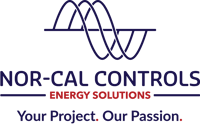A Power Plant Controller (PPC) is used to control and regulate the networked inverters, devices and equipment at a solar PV plant in order to meet specified setpoints and change grid parameters at the Point of Interconnect (POI). Site operators can communicate these setpoints and parameters to the PPC either directly, or more commonly through a SCADA system.
A PPC allows operators to control plant behavior in terms of grid stability, compliance, production levels and revenue. Though the specific requirements may vary, most PPCs can regulate voltage, frequency, reactive power, active power, power factor and ramp control.
There are also maintenance applications. Operators can use the PPC to perform remote starts/stops or other troubleshooting actions on trackers, inverters, breakers and other field and substation equipment.
We are often asked by solar PV plant owners and operators about the difference between PLC versus PC-based controllers. Let's look at the benefits and limitations of each, and how they tie in with typical site requirements.
Is a PPC a requirement by the IA, PPA or other?
Utility scale plants have Interconnect Agreements (IAs) and Power Purchase Agreements (PPAs) that require the ability to curtail or to control to a specified power factor. These functions require a PPC. While there is no standardized capacity threshold, most sites above 10 megawatts require a PPC.
However, we are now seeing even very small sites require a PPC due to ISO or utility requirements for voltage or generation. This may be a smaller or pared-down version of a PPC.
Can a PPC be used to control a BMS (Battery Management System) for projects having an energy storage component?
Yes, and it's becoming more common. At Nor-Cal, we're seeing many more requests from EPCs for our PPC to interface with their onsite BMS systems. The purpose is to set up charging and discharging at given time frames or given site requirements. There are some exciting developments in this area as we coordinate with BMS manufacturers and vendors.
What is the difference between a PLC-based PPC and a PC-based PPC?
A Programmable Logic Controller (PLC) is a dedicated piece of hardware that controls devices or processes based on pre-programmed, closed-loop logic. A PC or software-based PPC is a software that is installed on a server or PC and runs off of an Operating System (OS) like Windows or Linux.
What are some examples of each type of PPC?
At Nor-Cal Controls, we predominantly use GE RX3i controllers and Allen-Bradley ControlLogix PLCs for our systems. These are slot-based hardware PLCs that can communicate with field or substation devices and equipment via several network protocols. They can be hardwired or soft wired as needed.
We don't typically take onprojects with software-based controllers, however, some other SCADA providers do. They have proprietary software that is used for coding on their own Linux or Windows based systems.
It is also possible to create a kind of PID controller or pseudo PPC using certain HMI software. We use an HMI software called Ignition. Though it can't act as a full PPC, it does have some logical features that allow basic controls. So, in a sense, some HMI software can act similarly to a software-based PPC.
Are there any benefits to using one over the other?
Our reasoning in using hardware-based PLCs for our projects is that if a server or PC is compromised and goes down, a PC-based controller will no longer be intact, functional or operational. This may result in non-compliance issues with the PPA or IA. A hardware-based PLC can keep operating even if a server goes down due to its pre-programmed automatic function.
Windows machines often require updates, caches and simple reboots, which may take the Windows-based software PPC down. Barring some sort of network or power outage, a hardware PLC will always be online and controlling, even if you're doing updates or there's something else going on within your system.
With the specialized hardware and software that is required for hardware-based PLCs, their only downside is that they do come at a higher initial cost than PC-based controllers.
Are there any limitations to either? (hardware, software, support, functionality, etc.)?
Conventional hardware PLCs often have a more rapid response time than those that are software based. They are able to react to the external plant and the grid within milliseconds. Software-based PPCs will be limited to the specifications of the PC itself, apart from the specifications of the software and hardware. Physical, dedicated PLCs are so fast and robust because they have fewer functional responsibilities, whereas software-based PPCs have many.
This can also be viewed from the flip side. A physical PLC is great at its one job, but there are not many features you can add outside of that like you can with software-based PPCs. They're very rugged and robust, but they are less flexible in the way of modifiability or the ability to modify from a larger scale.
What project related factors dictate which type of PPC should be utilized (i.e. should a PC-based PPC only be used for smaller power plants, having less devices and points to monitor and control?)?
This involves due diligence on the part of the SCADA provider in reviewing the specifications, IA and PPA requirements. Owners may also require a dedicated control.
In our many years of project experience, we've found that the more data points and devices there are to control, the more strongly we recommend a hardware-based PPC. Reaction time of the controller is also a factor.
Smaller power plants may be able to use a PC-based controller if needed because they don't have to meet as strict of standards as the larger scale grid utility projects.
Are there any support considerations?
In our experience, support for either the PC or hardware-based PLCs really depends on the company or vendor you're going through. Either type of PLC can have outstanding or poor support; it's a case by case basis.
Learn More About PPCs
Now that you've learned about the types of PPCs, take the next step in discovering how they do their job. Our article on Power Plant Controllers: Typical Requirements for PV Sites covers the controls PPCs use to regulate active and reactive power in order to meet power requirements and support a stable grid. It also covers how PPCs tie in with the CAISO Automated Dispatch System (ADS).
If you have any questions about how Nor-Cal can help with your PLC programming, SCADA commissioning or any other aspect of your solar PV plant controls, please schedule a call today.





